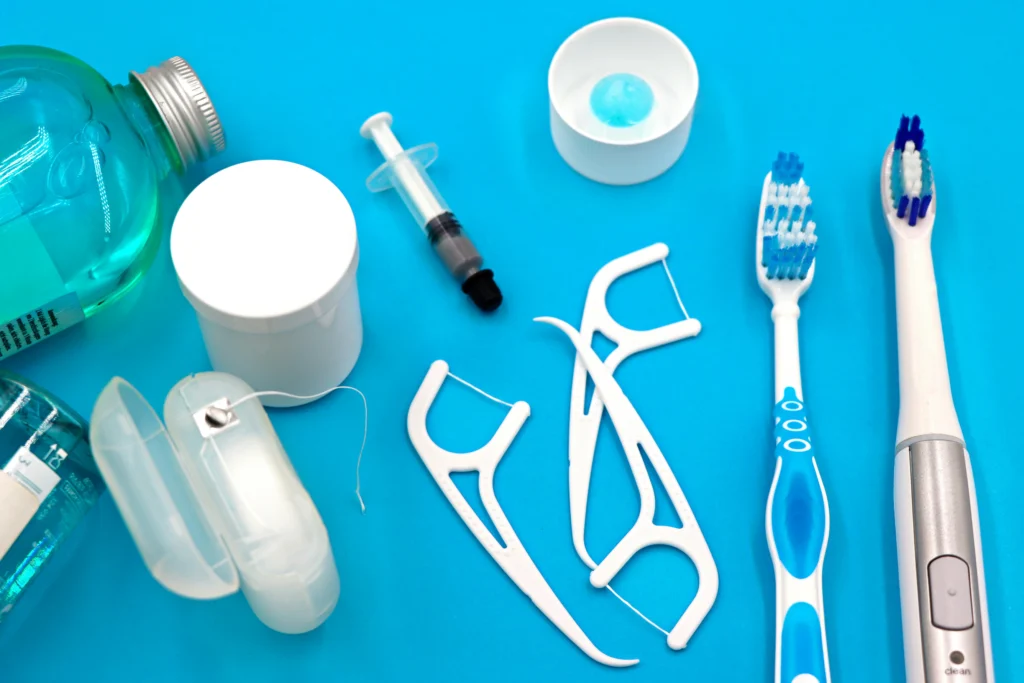Understanding muscle loss dementia and how it affects your loved one can be overwhelming. When someone you care for begins to lose weight or strength, it’s natural to worry—but these changes often connect to more than just aging. Muscle loss can be a sign of dementia progression and is closely tied to overall health, nutrition, and even oral function.
At Dental Home Services, our team works closely with families across New Jersey who face these same concerns. As a trusted mobile dentist in NJ offering in-home care, we see firsthand how oral health and nutrition affect muscle strength, swallowing, and well-being in dementia patients.
If you’ve noticed new frailty or difficulty eating, it may be time to take action. Contact us or call +1-800-842-4663 to schedule a home visit today.
Why Muscle Loss and Dementia Are Linked
Research continues to reveal a strong connection between muscle loss and dementia. According to findings shared by the Radiological Society of North America, lower skeletal muscle mass—especially in the upper arms and legs—correlates with a higher risk of dementia and faster cognitive decline.
This means that dementia muscle loss is not only a symptom of reduced mobility but also an indicator of changes in brain health. As dementia progresses, patients may eat less, lose coordination, and have trouble with chewing or swallowing. Poor oral health or missing teeth can make the situation even worse, leading to a cycle of undernutrition and weakness.
Families may first notice muscle loss in this area—such as the shoulders or thighs—as their loved one becomes less active or struggles to hold objects. Identifying early warning signs allows caregivers to involve professionals who can help maintain function and comfort.
Is Muscle Loss a Sign of Dementia?

Yes, muscle loss can be a sign of dementia, particularly in older adults with unexplained weight loss or decreased activity. It’s often subtle at first: clothes fitting loosely, difficulty standing up, or reduced hand strength. While muscle changes can happen naturally with age, rapid or uneven loss may suggest neurological decline or difficulty maintaining nutrition.
A muscle loss indicator of dementia can also appear in the face or jaw. When jaw muscles weaken, patients may have trouble chewing or managing dentures, causing them to avoid food altogether. That’s where home-based dental support becomes essential. Our dentists often notice oral muscle weakness before families realize how much it’s affecting eating habits.
How Muscle Loss in Dementia Impacts Oral Health
In advanced dementia, weakened muscles don’t just affect walking or posture—they influence facial and oral function too. Muscle loss in this area dementia cases can lead to:
- Drooping or sagging facial muscles
- Poor denture fit or slippage
- Difficulty swallowing or closing the mouth
- Reduced saliva production, leading to dry mouth
- Trouble maintaining regular brushing or oral care routines
Each of these factors can increase the risk of infection, gum disease, and tooth decay. That’s why addressing oral health is an important part of managing muscle loss and dementia together.
Dental Home Services brings dental care directly to where your loved one lives—making it easier to manage problems early, prevent pain, and improve their ability to eat and communicate comfortably.
What Caregivers Can Do
Supporting a loved one with muscle loss dementia doesn’t mean facing it alone. Families can make a major difference by focusing on three key areas: nutrition, movement, and oral care.
- Encourage small, protein-rich meals
Soft foods like eggs, yogurt, or fish can help maintain muscle strength while being easy to chew. For patients with dentures, see our guide on false teeth cleaning solutions to ensure hygiene and comfort. - Maintain light physical activity
Even gentle stretching or assisted walks can slow muscle decline. Pair this with daily routines that engage coordination, like folding laundry or gardening together. - Address dental issues early
A poorly fitting denture or tooth pain can drastically reduce appetite. Our team offers complete denture services, including repairs and relines, through in-home visits across New Jersey. - Manage dry mouth and breath concerns
Hydration and oral sprays can relieve discomfort and make eating easier. If you notice persistent dryness or odor, see our article on spray for breath for caregiver tips.
These simple interventions, combined with professional oversight, help prevent avoidable health setbacks while improving quality of life.
Why Dental Home Services Supports Families Facing Muscle Loss and Dementia

Dental Home Services was founded to meet the needs of elderly and homebound patients who can’t access traditional dental offices. Our geriatric dentistry approach centers on safety, patience, and empathy—qualities essential for those living with dementia muscle loss.
We regularly assist families who notice:
- Difficulty eating or chewing
- Rapid weight loss with no clear cause
- Loose dentures or mouth soreness
- Refusal to brush or open the mouth
- Jaw stiffness or clenching
By coordinating directly with caregivers, physicians, and nursing staff, we help patients maintain oral function for as long as possible. This, in turn, supports nutrition and helps manage muscle loss and dementia simultaneously.
Our services include:
- In-home exams and cleanings
- Denture adjustments, repairs, and fittings
- Treatment of gum infections or tooth pain
- Recommendations for soft diets and hygiene routines
- Education for caregivers and facility staff
We understand how challenging dementia care can be. That’s why our mobile dentist in NJ model exists—to ensure no patient is left without professional support, regardless of their mobility or memory condition.
When to Seek Professional Help
If your loved one is losing weight, chewing less, or avoiding meals, it’s time to look beyond diet alone. Oral pain or ill-fitting dentures may be preventing proper nutrition. Signs such as slurred speech, frequent drooling, or jaw fatigue can also point to muscle loss sign of dementia affecting oral function.
Families throughout New Jersey rely on Dental Home Services for compassionate, in-home dental care. We make scheduling simple and flexible so you can focus on what matters most—your loved one’s comfort.
If you’re unsure where to start, call +1-800-842-4663 or book an appointment today. Our reviews from families across the state reflect the relief that comes from knowing your loved one’s care is in capable hands (see reviews).
Empowering Caregivers with the Right Information
Awareness is key when managing muscle loss dementia conditions. Stay informed by exploring our blog, where we share practical articles on dementia, oral care, and caregiver strategies. You’ll find helpful topics such as denture maintenance, dry mouth management, and compassionate dental tips for people with Alzheimer’s and cognitive decline.
Each post reflects our mission: to educate, support, and deliver the highest standard of in-home dental care for elderly patients throughout New Jersey.
Dental Issues, Muscle Loss and Dementia Should be Tackled With Care
Caring for someone experiencing muscle loss and dementia requires patience, observation, and access to the right professionals. Muscle decline can begin subtly—first in the arms, face, or jaw—but with timely attention, its effects can be slowed.
At Dental Home Services, we partner with families to maintain nutrition, comfort, and oral strength. Our portable, gentle care ensures that patients continue receiving essential treatment without leaving their home or facility.
If you need a dentist in NJ or NY who understands dementia care, reach out today. Schedule your visit or call +1-800-842-4663 to speak directly with our friendly team.
Your loved one’s comfort matters—and we’re here to help protect it every step of the way.
Disclaimer: This article is for informational purposes only and should not replace professional medical or dental advice. Always consult a qualified healthcare provider for personal guidance and treatment.

